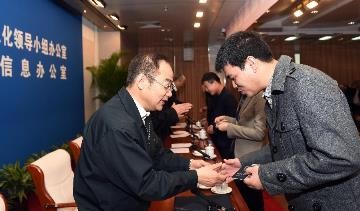The government is planning to set new policies to better regulate news portals and prevent commercial news portals, which are not granted news reporting license, the Cyberspace Administration of China (CAC) announced on Friday, Nov.6.
According to a report by the Global Times, the first group of 594 reporters from 14 major central news portals, including the authorized Chinese government portal, official websites of People's Daily and the Xinhua News Agency, and a portal for Tibet, were issued press cards on Friday, Nov. 6, by the CAC and the State Administration of Press, Publication, Radio, Film and Television (SAPPRFT).
"The press card is the same as that held by traditional media. Card holders enjoy the same reporting rights, responsibilities and obligations," CAC spokesperson Jiang Jun said during the ceremony.
The report said that employees belonging to commercial news portals such as Sina and Sohu were not given press cards.
According to Jiang, commercial news portals have no right to interview people or report news independently, which is the reason why the CAC has decided not to issue them press cards temporarily.
The CAC is also planning to establish an occupational qualification system that will help regulate news portals and stop commercial news portals' practice of interviewing people, at the same time raising the punishment and supervision over conducting interviews without a press card.
"The government has made clarification within the journalism industry which defined what they can do and can not do, and that aims to help regulate journalism work," Zhang Zhi'an, a professor at the School of Communication and Design of Sun Yat-sen University, told the Global Times.
Zhang said that commercial news portals, although online news media, are not controlled by the government unlike most media outlets in China, which are generally state-owned. Commercial news portals, therefore, can only publish news produced by other news sites, the professor added.
Websites in China were previously banned from reporting on news, but were allowed to edit and publish news from traditional media.



























